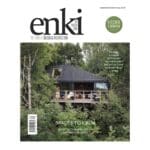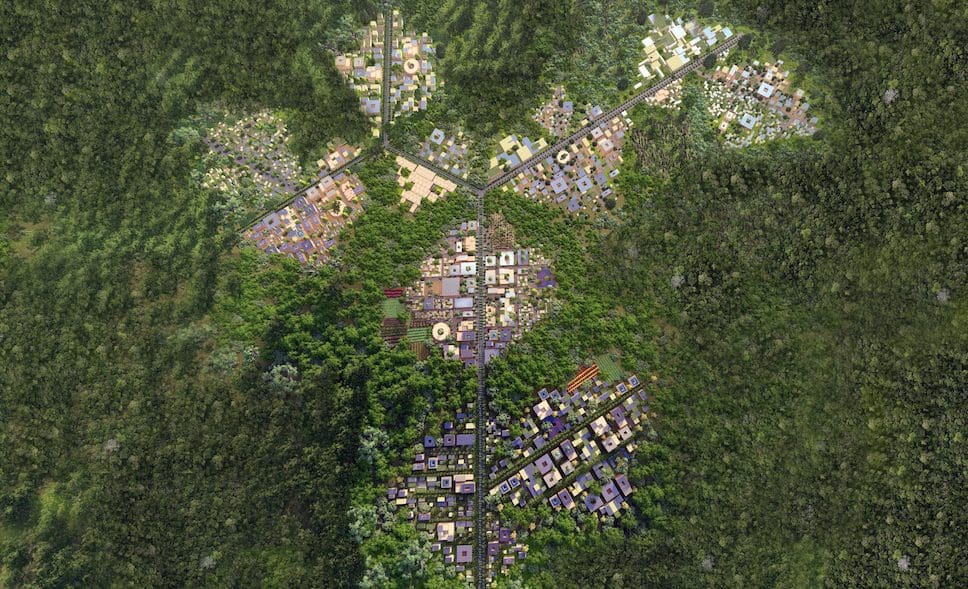
An exceptional shortlist of projects for the World Architecture Festival 2022 has been announced, featuring 20 future concepts that address climate change and community resilience.
The World Architecture Festival awards programme celebrates newly built works as well as innovative future designs that address environmental concerns. The 420-strong shortlist has been selected from hundreds of entries from over 50 countries, and it includes a Future Projects category which highlights the most inspiring new architectural concepts.
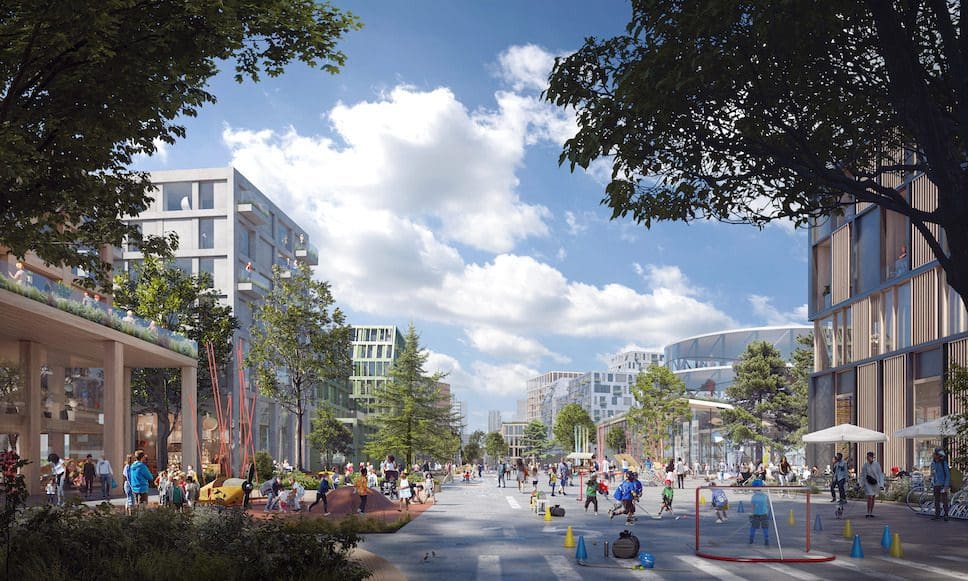
Together with Henning Larsen, SLA Architects and Urban Strategies, KPMB Architects has designed the Downsview Framework Plan which is set to be the largest urban development in Canada
For the first time, the festival will be hosted in Portugal’s capital Lisbon under the theme ‘Together’ which will address how communities across the globe can work collaboratively to tackle major world issues. This is complemented by a live events programme involving an international panel of speakers, debating how architecture is responding to climate change and the renewal of community life post-pandemic.
“Big challenges require big commitment and fresh thinking. The projects show that architects across the world are responding to complex problems in imaginative ways – with the bonus of some design delight,” commented WAF programme director Paul Finch.
Alongside some of the biggest names in world architecture, such as Foster + Partners, Zaha Hadid Architects, Mecanoo and White Arkitekter, there are many smaller practices on this year’s entrants list who are making quite the impression. Read on to find out more:
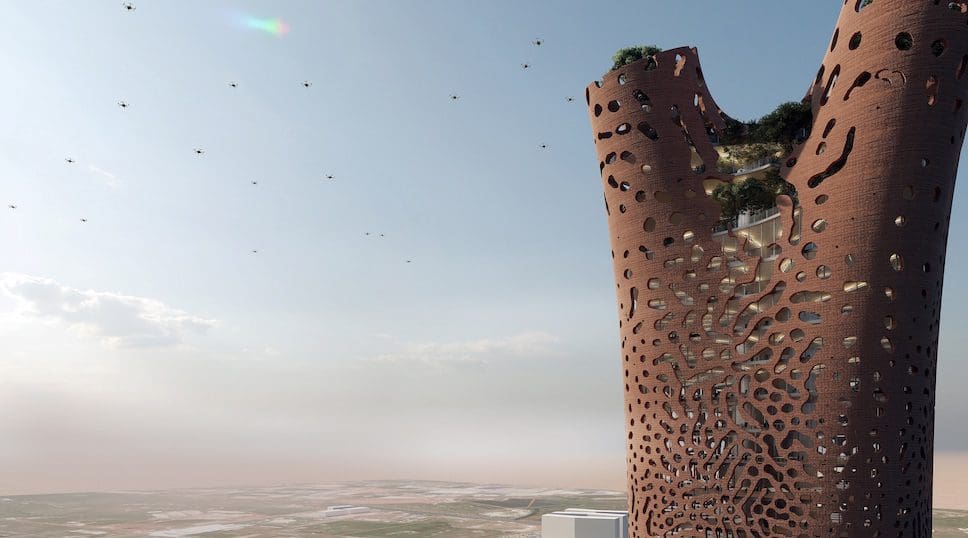
Architecture on the world platform
BAD – Built by Associative Data is a young international design and architecture practice with an expanding list of forward-thinking projects. According to the practice, their “design methodology focuses on the careful generation, processing, and analysing of project specific data for the purpose of optimising important design decisions.”
The Forest City (pictured top) and the Tower of Life (pictured above) projects, both by BAD, are categorised in the ‘Future Projects’ category as they are yet to be realised, but they are recognised for holding enormous potential to make a positive impact on the built environment. The Forest City follows a multi-loop circular economy system, with a focus on self-sufficiency, upcycling, and a zero-sum emissions energy grid. On the other hand, the Tower of Life demonstrates the architecture practice’s expertise in material engineering with a design agenda that involves biocomputation and material engineering.
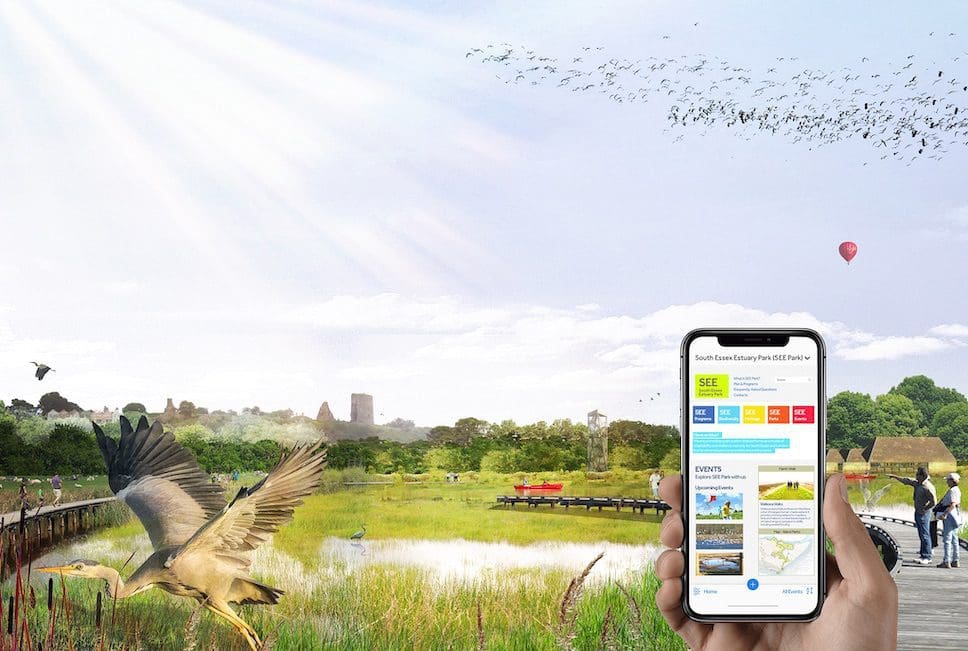
Alexandra Steed URBAN is a London-based group of architects, landscape architects, and urbanists who are focused on the public realm and landscape-led strategies. The SEE Park project (pictured above) conceived by the practice reveals an ambitious vision for combatting climate change, ecological collapse, and social inequity by creatively utilising green and blue infrastructure at a regional scale. It seeks to provide an exemplary model of strategic planning, especially within estuary environments (of the 32 largest cities in the world, 22 are in fact located on estuaries, according to the World Architecture Festival).
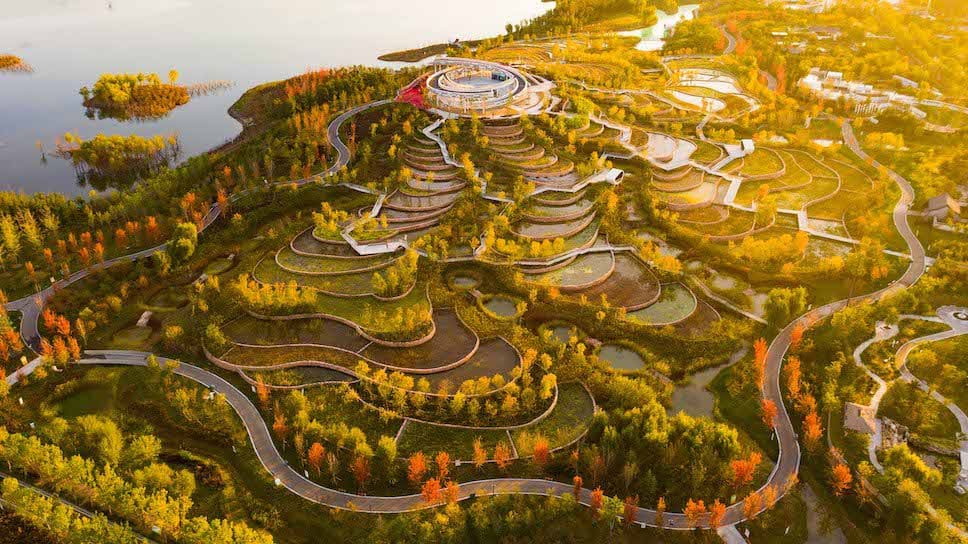
Photography courtesy of the World Architecture Festival.
The World Architecture Festival 2022 returns as an in-person event in Lisbon, Portugal, from 30th November to 2nd December. See the full shortlist.
Read about all of the latest architecture news and events on enki.
